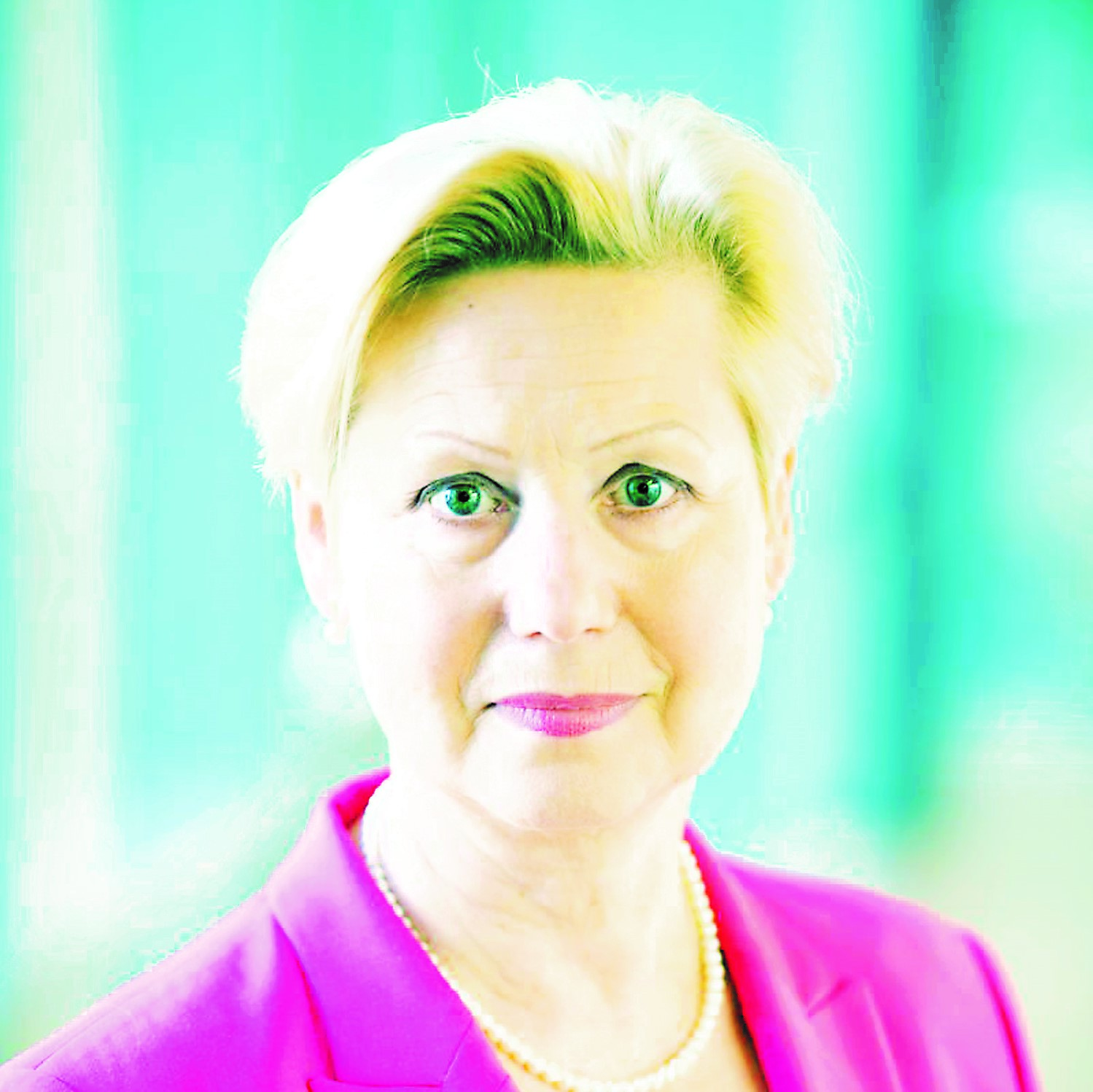
News

Never again, says Lithuanian ambassador
SIGUTĖ JAKŠTONYTĖ
The 600 years of history shared by the Lithuanian and Jewish communities includes joyful and painful moments. The 20th century brought immense tragedy, a tragedy for Lithuania and the entire world. About 95% of Lithuanian Jews perished in the Holocaust. It’s distressing that some Lithuanian citizens were also directly involved in the mass killings organised by the Nazis.
Lithuania will never forget this tragedy. President Gitanas Nausėda paid his deepest respect to the victims of the Shoah (Holocaust) killed by the Nazis and their collaborators during his recent visit to Oswiecim in Poland to attend the commemoration of International Holocaust Remembrance Day and the 75th anniversary of the liberation of the Auschwitz-Birkenau death camp.
“We cannot revive the innocent victims. We can hardly ease the pain of those who lost their loved ones. The only thing we can and must do is keep the memory alive and search for the historical truth,” the president said.
Lithuania learned its lesson, and resolved to fight against anti-Semitism, to educate a tolerant citizenry, to restore justice, and to ensure that such human tragedy will never happen again.
The turning point in this respect was 1995. Then Lithuanian President Algirdas Brazauskas visited Israel to ask for forgiveness for the actions of those Lithuanians who together with the Nazis brutally killed, banished, and humiliated Jews. The truth, although difficult to accept, was voiced. Independent and democratic Lithuania recognised its historical responsibility towards the Jewish community. The work on historical memory started.
Lithuania will never forget the Holocaust and its victims. We are proud of thousands of Lithuanians who risked their lives to save Jews during the Holocaust. Today, more than 900 Lithuanians have been recognised as Righteous Among the Nations.
Every year, the entire country commemorates Holocaust Remembrance Day on 27 January, as well as the Day of Remembrance of the Victims of the Genocide of the Lithuanian Jews on 23 September. Thousands of people of all ages march on that day in numerous Lithuanian cities and towns to visit the sites of Jewish massacres.
The government of Lithuania is implementing a policy of zero tolerance towards anti-Semitism and all forms of racism. Lithuania was among the first countries to endorse the definition of anti-Semitism used by the International Holocaust Remembrance Alliance.
Academic institutions devote a great deal of attention to researching the history, culture, and heritage of Lithuanian Jews.
Vilnius University hosts the Centre for Studies of the Culture and History of East European Jews. A Judaica Research Centre has been opened in the Lithuanian National Martynas Mažvydas Library.
It’s difficult to overestimate the impact of the activities undertaken by the Secretariat of the International Commission for the Evaluation of the Crimes of the Nazi and Soviet Occupation Regimes in Lithuania, which has been operating since 1998. The commission did an enormous job of researching the Holocaust in Lithuania.
Education is a critical part of the solution. Teaching about the Holocaust in a global and Lithuanian historical context is compulsory for Grade 5, 6, 10, and 12 students. A total of 147 Tolerance Education Centres of informal education about the Holocaust operate within the country.
Every year, Lithuanian teachers come to Yad Vashem to improve their expertise. More than 300 of such experts are now working with our kids in schools throughout Lithuania. Leading Lithuanian journalists come to this unique centre to deepen their knowledge about the Holocaust.
To cherish the history of Lithuanian Jews, Seimas, the Parliament of Lithuania, proclaimed the year 2020 as the Year of Vilnius Gaon and the History of the Jews of Lithuania.
The government and its embassies abroad have approved an extensive plan of events to commemorate Jewish culture and history throughout Lithuania. From international scientific conferences to the exhibition of the works of Marc Chagall and Samuel Back, from publishing a book Holocaust History in Lithuania that will summarise a 20-year work of the International Commission for the Evaluation of the Nazi and Soviet Occupation Regimes in Lithuania, to a series of events on the input of the Lithuanian Jews into world literature at the Vilnius Book Fair, just to name a few.
Since the opening of the Lithuanian embassy in Pretoria in 2015, numerous cultural events dedicated to Jewish cultural heritage have been organised by the embassy in collaboration with the Johannesburg Holocaust & Genocide Centre, the Cape Town Jewish Museum, and the Durban Holocaust & Genocide Centre.
A photo exhibition by famous Lithuania photographer Raimondas Paknys, Sounds of Silence, has been exhibited in Johannesburg, Cape Town, and Durban, as well as Lithuanian contemporary art exhibition Zakhor! Imaginations of the former Jewish Vilne in Modern Lithuanian Art, and an exhibition dedicated to Jewish history in Lithuania, One Century of Seven. Lietuva. Lite. Lita.
In South Africa, a commemoration of the Vilna Gaon and the History of Jews of Lithuania kicks off at the end of March with a documentary film by Johnathan Andrews Because of Stalin.
In conclusion, there is no place for anti-Semitism in my country. Concerted efforts need to be made by the entire international community to safeguard against any form of xenophobia, bigotry, and hatred.
We all share the responsibility to make sure such a tragedy will never happen again.
- Sigutė Jakštonytė is the Lithuanian ambassador to South Africa.




